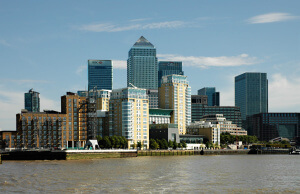More catastrophic bank results as second largest FX dealer Deutsche Bank announces £5.1 billion loss in 2015
London’s banking giants have experienced several years of trading volume contractions, regulatory fines, class action litigation and flagging corporate performance, and with 2015 now behind us, the losses continue. A total contrast to the 1990s, which was a decade that began with a severe recession that plagued Britain’s markets, interest rates at 15% and negative […]

London’s banking giants have experienced several years of trading volume contractions, regulatory fines, class action litigation and flagging corporate performance, and with 2015 now behind us, the losses continue.
A total contrast to the 1990s, which was a decade that began with a severe recession that plagued Britain’s markets, interest rates at 15% and negative equity being a reality for many homeowners, banks are making losses that run into the billions.
Twenty five years ago, during the time of 15% interest, negative equity and home reposessions, banks still made profits, indeed Lloyds Bank’s balance sheet was still well in the black in 1991 despite the very tough market conditions.
Today, things are somewhat different. Banks are actually making losses, and the extent of the losses in some cases is substantial.
Deutsche Bank is expecting its full revenue figures for 2015 to be £25.7billion, with a net loss of around £5.1billion. This is the first time since 2008 that the company will record a loss.
Deutsche Bank’s London operation is the second largest interbank FX dealer in the world with 14.54% of the global market share.
Alongside Canary Wharf-based peers which include Citi, Barclays, RBS, and HSBC, Deutsche Bank takes its part in handling the lion’s share of global FX order flow.
The bank provides a proprietary system, called Autobahn, which is an interbank institutional platform, as well as provides prime brokerage and FX research facilities to institutions.
Deutsche Bank’s CEO John Cryan has recently issued a letter to its employees explaining that the company is expecting to have to pay £613.5 million for corporate restructuring and severance pay, as well as £920 million to settle class action law suits and fines from regulators as well as implement new procedures to ensure that regulators are satisfied.
These figures come at a time when major banks are concentrating their attentions on the Asia Pacific region, and in some cases are looking to relocate their operations to the Far East due to the greater business opportunities in the region.
Should this come to fruition, London’s financial sector may well morph from traditional banking to being recognized solely as an institutional FX center for liquidity providers, prime brokerage and fintech development.









